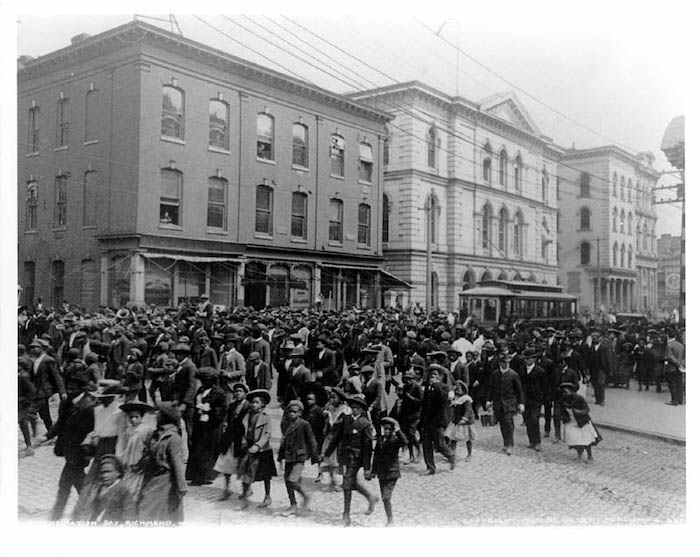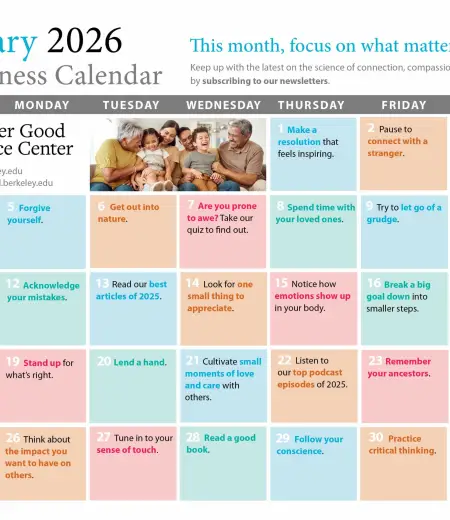On Juneteenth, Black Americans celebrate emancipation from slavery. Every year, we at the Greater Good Science Center take this opportunity to gather content that honors Black history, culture, and well-being, and which asks our readers to reflect on the ongoing fight for equality and justice. We hope people of all backgrounds take at least a little time to join us in doing so.
- A Short History of Black Happiness: What can African American history tell us about the cultivation of well-being?
- How Well Do Happiness Practices Serve Black Communities?: We interviewed Black people about where happiness comes from and whether 15 typical happiness practices work for them.
- Why Telling Our Own Story Is So Powerful for Black Americans: Andrea Collier reflects on the role of storytelling in black American history—and in her own life.
- Why Storytelling Skills Matter for African-American Kids: For black students, storytelling skills directly predict their early reading skills.
 Emancipation Day celebration in Richmond, Virginia, 1905. Source: Wikipedia
Emancipation Day celebration in Richmond, Virginia, 1905. Source: Wikipedia- How to Change the Story about Students of Color: Dena Simmons explores how educators can inadvertently harm students of color—and what we can do to bring out their best.
- Why Marginalized Students Need Hope to Succeed: Researcher Dante Dixson is developing programs to help disadvantaged students envision a brighter future for themselves.
- How Talking About Race Can Bring Black Families Together: A new program is helping Black children and their caregivers talk about race—and they’re learning important lessons about racial socialization.
- For Black Children, Play Can Be Transformative: Play is a radical and liberatory activity for Black children. As adults, we have a responsibility to promote and participate in it, too.
- Nine Picture Books That Illuminate Black Joy: These books celebrate Black children’s everyday lives—being bold, curious, creative, loving, and playful.
- How Adults Can Support the Mental Health of Black Children: Psychologist Riana Elyse Anderson explains how families can communicate about race and cope with racial stress and trauma.
- How Can I Stay Positive for My Kids When I’m So Overwhelmed?: Even for a psychologist who studies how kids understand racism and violence, talking to her own children about it is difficult.
- How the “Strong Black Woman” Identity Both Helps and Hurts: Being a “superwoman” could help African American women cope with racial discrimination—but it may have some drawbacks.
- Seven Complicated Lessons From Jamaica About Happiness: What does the island reveal about the science of happiness?
- From Othering to Belonging: In a Science of Happiness podcast, we explore racial justice, well-being, and widening our circles of connection and concern.
- Thoughts on Awkward Relationships and Bridging Divides: In a Science of Happiness podcast, comedian W. Kamau Bell discusses the challenges of finding common ground, even with people in your own family.
- Why George Floyd Still Matters: Five years ago, the police killing of George Floyd provoked a wave of change. As those gains come under attack, Stephanie Griffith finds hope in human moments.
- Can We Build a World Where We All Belong?: john a. powell explains why we distance ourselves from groups of people and how we can all find the connection that we crave.
We also have resource pages devoted to anti-racist tools and to the scientific case for diversity.







Comments